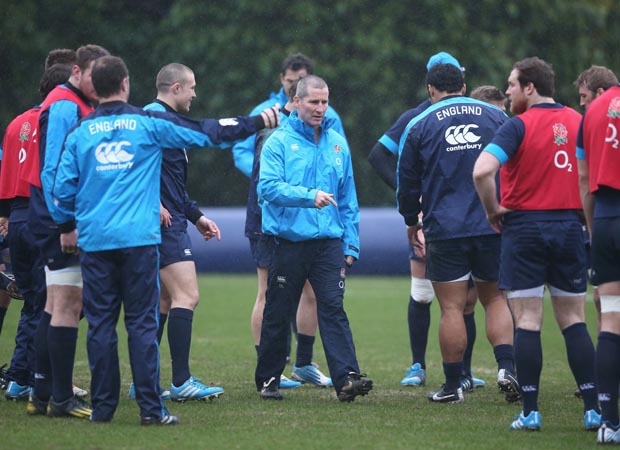 It has taken time but at last there has been some common sense from the Premiership in their relationship with the England squad. The news that Stuart Lancaster will be able to wait until October before having to pick his first EPS for the England and Saxons teams instead of the usual pre-season selection, will be a very positive step towards improving England’s prospects of winning the autumn series.
It has taken time but at last there has been some common sense from the Premiership in their relationship with the England squad. The news that Stuart Lancaster will be able to wait until October before having to pick his first EPS for the England and Saxons teams instead of the usual pre-season selection, will be a very positive step towards improving England’s prospects of winning the autumn series.
For years the England manager/head coach has had to try and predict what players would be on form coming into the season and even if he got it wrong, was stuck with that choice until January.
Now, Lancaster and his management team will be able to keep track of all the players they know and those on the fringe of the squad who would usually be discounted because they haven’t had the chance to show what they can do.
This effectively ‘short cuts’ the selection process, enabling the management to pick players who are playing the best rugby week to week and will help remove any complacency that early selection might have given ‘established players’ and increase the competition for EPS places.
That can only be good in enabling the England team to take the step up to becoming a winning team against the SANZAR nations and this autumn is their first chance to prove they have made that step, after what despite the upbeat protestations, was a disappointing summer tour results wise.
The selection of the EPS has always been a bit of a bone of contention with selections having to be made just twice a season, months away from either the autumn internationals or the Six Nations and not allowing the England coaching team to make any adjustments to personnel, depending on performance or form.
While I understand the need for clubs to have a level of certainty when it comes to team selection and game promotion, effectively forcing the England management into making adhoc selection decisions based on last season’s form, did seem a little extreme to say the least.
Hopefully, this is the first of many positive agreements between the Premiership and the RFU in the build up to next year’s World Cup to give the England squad the best shot at winning at home.
As clubs begin the build up to the season with an increase in activities in the club house there is a cautionary tale for all.
What sounds like a comical attempt by two sneak thieves to rob players at an Edinburgh Academicals training session, only to be chased and caught by 40 of the players and held for the police, is in stark contrast with recent events at Sedgley Park Rugby Club.
Following a late night party at the club, two members were clearing up when they were attacked by four thugs, forced to open the club safe at knife point and a sum of money was stolen. The club steward John Grundy and Phil Hutchinson were beaten and Hutchinson suffered a broken ankle after which they were then threatened with a knife.
Rugby clubs are usually situated in out of the way places on the edge of towns and as such, are vulnerable to such attacks during matches, training, or late at night when closing.
When I was coaching Barking rugby club we travelled to North Walsham RFC for a game and, while the team were changing, a man came into the room and asked for the players valuables which he collected in a bag and took it to the bar with one of our players to make sure he deposited it with the staff.
Shortly before the end of the game he slipped into the club house, collected the bag and left the ground taking all the players’ wallets, phones, wedding rings etc. and although he was caught a few weeks later attempting to do the same thing at another club, nothing was recovered.
Rugby is a social sport and as such those of us involved with the game like to think that anyone who comes to a club has good intentions and wants to be a part of the rugby family.
That trust and openness makes rugby people vulnerable to the cynicism of the few who have ulterior motives and seek to take advantage. Although it is important that these incidents are publicised, there is a chance that due to the publicity, it could make clubs more of a target for thieves who may not have thought of the potential opportunity available.
As difficult as it is, clubs must maintain the friendly welcome but remain cautious and ensure that security for members and visiting teams is maintained – but if an incident occurs all clubs (rugby or other sports) in the local area must be informed of the modus operandi and put on high alert.
Finally, today England Women are playing Canada in the final of the World Cup. It has been a magnificent tournament full of classic games of real intensity with a few major surprises thrown in to make it a fascinating contest.
There can be no doubt that this World Cup has shown not only the rising standard of the Women’s game but has heightened its profile to a new level.
Despite this, I have a nagging doubt that, should England win, there will be a visit to Downing Street, an audience with the Queen, an open top bus parade through the centre of London, a knighthood for Gary Street and Honours for the whole squad, (including the press officer).
Attitudes towards the women’s game has improved but still has a way to go before they are considered equal to the men!
*This article was first published in The Rugby Paper on August 17.























